What are reproductive hormones?
Hormones are chemical messengers released by one body tissue to affect another, travelling via body fluids. Reproductive (sex) hormones regulate reproductive system processes (e.g. activities regarding fertility and puberty). Healthy sex hormone levels are relatively individual. 'Normal’ ranges for each person are generally defined as those existing in the absence of pathologic symptoms. A functional balance in hormonal profile within each individual is vital to good health.
The female reproductive system is regulated by a variety of sex hormones, all fulfilling important, specific roles to ensure everything keeps ticking along as it should. Each of these hormones peak and trough at different points throughout the female reproductive cycle in what ideally represents a synergistic and responsive dance.
Let's look at where the primary players are made in the body and what functions they take care of:
Health issues associated with female reproductive hormone imbalance
I know that the above section is a little science-y but, even if your eyes glazed over early in the piece, it highlights that we are looking at quite a complex matrix of relationships and dependencies throughout different areas of the body that we need to rely on for everything to function properly. So it should come as no shock that the health impacts of imbalances in this system can be caused by, and in turn contribute to, a number of widespread health challenges.
In a nutshell, reproductive hormone imbalances are associated with health problems throughout the reproductive and other systems, often due to the complex interrelationships between different hormonal processes. Some associations include:
Emotional stress can significantly impact sex hormone production and balance, leading to potential reproductive function impairment.
Lifestyle and lifecycle factors such as exercise, increasing age, eating habits and chronic disease status can all impact reproductive hormone levels and activity.
Imbalances of the gut microbiota can have multifaceted effects on sex hormones.
Exposure to external toxins can also wreak havoc on sex hormone activity.
In women, an imbalance in sex hormones is associated with reproductive conditions including polycystic ovary syndrome, endometriosis and menstrual abnormalities.
Some cancers have been linked to these imbalances, as well as health conditions of the skeletal (e.g. osteoporosis/bone density reduction), nervous (e.g. mood disorders) and cardiovascular systems.
Holistic strategies to rebalance female sex hormones
So is there a universal PCOS diet? What about a one-size-fits all diet for endometriosis? By now, you won't be surprised to hear that diet and lifestyle approaches to keeping your hormones happy are varied but ultimately must be very unique to an individual's specific circumstances and manifestations of imbalance. Below are some strategies and nutrients that may be useful.
Lifestyle practices for female reproductive hormone balance
Depending on your specific circumstances, the below lifestyle factors may be helpful:
Avoiding highly refined and processed foods that are high in sugar, saturated fat and salt.
Maintaining a regular routine of moderate - not excessive - physical activity.
Maintaining a healthy body weight.
Adopting healthy stress management habits and strategies.
Avoiding smoking, illicit drug use, alcohol and caffeine.
Opting for meat and dairy that is free of synthetic hormone use, and chemical-free, locally sourced, seasonal fresh produce.
Key nutrients for rebalancing female sex hormones
The nutrients listed below are directly associated with the balance of female reproductive hormones but, in practice, personalised nutritional strategies will more holistically take into account and address any relevant interrelationships with other systems and health challenges.
Zinc
Zinc is a very important nutrient for reproductive processes. Its actions span processes of ovulation, fertilisation, metabolism of other sex hormones and communication between the different reproductive hormone production organs. It is not the easiest nutrient to pack into your regular dietary patterns, with key sources being liver, beef, oysters and pumpkin seeds.
B group vitamins
The eight B group vitamins work synergistically and support the clearance of oestrogen through liver detoxification, so they can be helpful when it comes to health conditions related to 'oestrogen dominance' (yes, that's a thing!) - i.e. high oestrogen relative to progesterone levels. To cover the cluster of all B vitamins, a collective dietary strategy may involve food sources such as red meat, fish (esp. salmon and trout), milk, eggs, green leafy vegetables, liver, wheatgerm and brewer's yeast.
Glucosinolates (esp. isothiocyanates and indoles)
Wow, what a mouthful, hey?! A strong name for a boss action, these guys can help to downgrade oestrogen to a less powerful form and also support oestrogen clearance. You guessed it - helpful for addressing oestrogen dominance. They are found primarily in cruciferous vegetables such as broccoli, brussels sprouts, cauliflower, cabbage and bok choy.
Key tips for female hormone balance
Female reproductive hormones function within quite a complex system of interrelationships and dependencies, so imbalances are not uncommon.
Holistic approaches to rebalancing these hormones can be varied or specific, and will often need to incorporate strategies to address the additional health challenges or dysregulations surrounding the imbalance itself.
Adopting holistic diet and lifestyle strategies such as: a varied diet packed with fresh wholefoods; stress, weight and toxin exposure management; and regular moderate physical activity can support a happy and healthy hormone profile.



